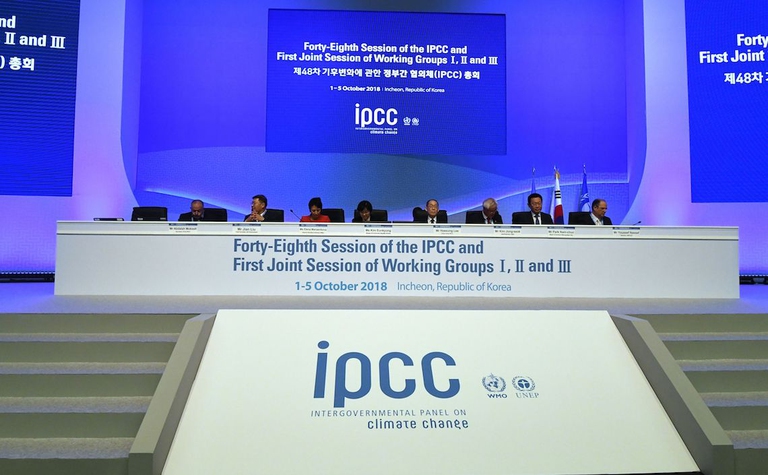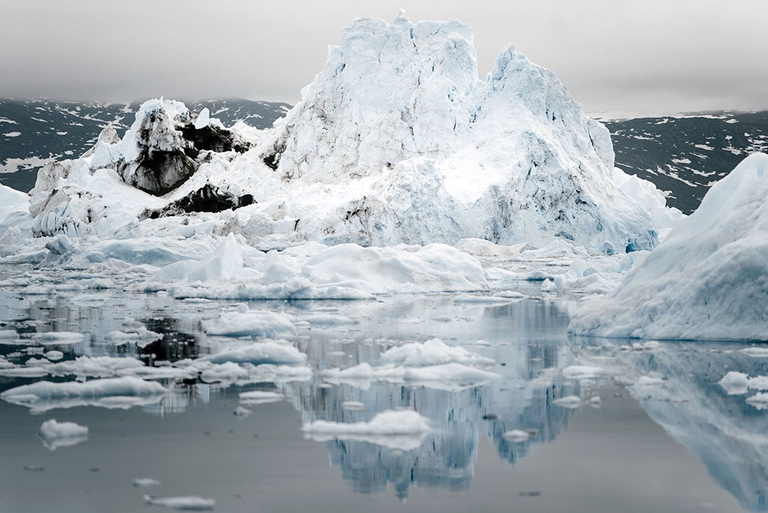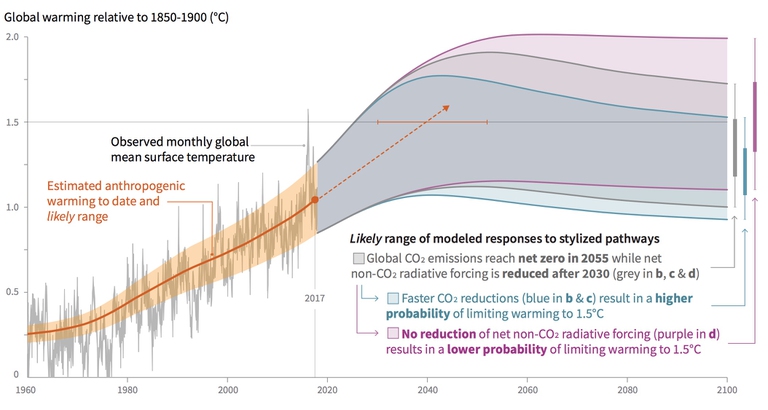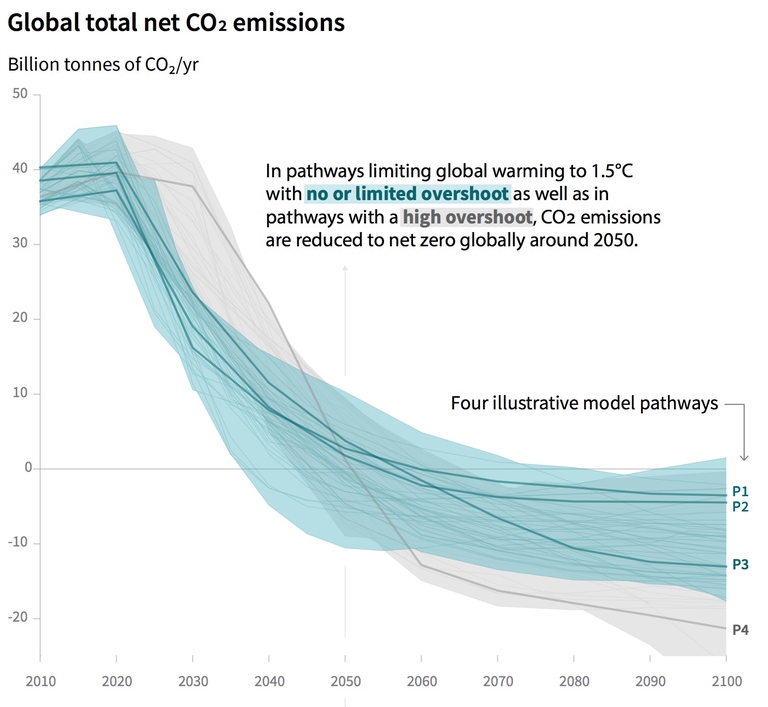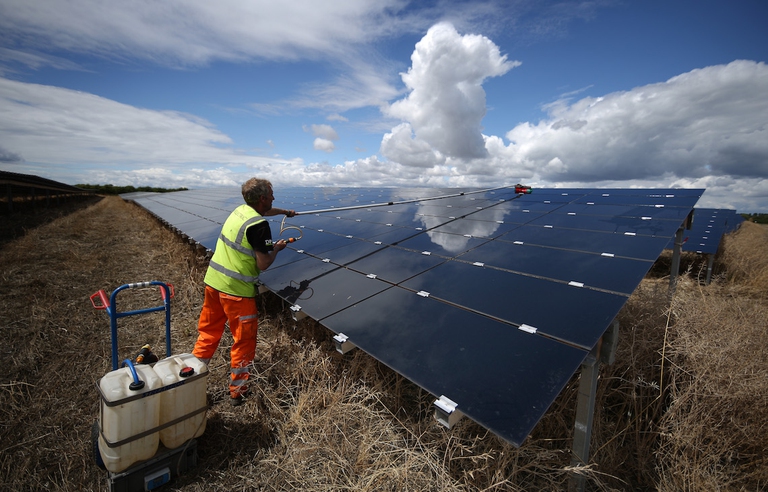
The Arctic sea ice’s near future might look different than we thought. A new study focused on the near future of the ice in the Arctic region.
We need to act now or the consequences of global warming will be catastrophic. The scientists of the latest IPCC climate change report make the last call for humanity to take action.
The increase in the average global temperature could hit 1.5 degrees as early as 2030, compared to pre-industrial levels. The Special Report 15 (SR15) of the Intergovernmental Panel on Climate Change (IPCC) is more than a warning call. It’s the definitive confirmation – and climate change deniers should now give in – of the catastrophic consequences we’ll face if we don’t act to limit global warming. This means cutting greenhouse gas emissions in record time.
The report (published in South Korea, where negotiations among governments took place, at 10 a.m. local time) is a detailed analysis. 250 pages curated by a task force of 91 experts from 40 countries who analysed more than 6,000 studies and whose work has been in turn examined by tens of scientists. The document explains that the average temperature of the surface of the world’s lands and oceans increased by 0.17 degrees per decade, since 1950.
If not curbed, this trend will lead the Earth to exceed the threshold of +1.5 degrees between 2030 and 2052 (according to the different scenarios the SR15 took into consideration). This means that in just 11 years we could reach the temperature rise that the Paris Agreement hypothesised for 2100. And if the trend remains unvaried for the rest of the century, a catastrophic scenario is certain, as we’d reach a +3 degree rise at this pace.
The IPCC underlined how we already reached +1 degree between 2017 and 2018. An almost deperate situation, but according to the IPCC our Planet isn’t doomed yet. “Our role isn’t determining if the goal of the Paris Accord is feasible or not. But nothing in the scientific literature tells we can’t reach it. What we explained are the conditions needed to meet that goal. Now it is responsibility of the policy makers,” said Henri Waisman, researcher at the Institute for Sustainable Development and International Relations (IDDRI) and co-author of the report.
The special report, in fact, was commissioned to the IPCC during the COP21 in Paris in 2015, with the aim to outline the current trend in reference to the 1.5-degree goal on the basis of the commitments made by each government to reducing greenhouse gas emissions.
This is why the IPCC underlined the fact that it is now crucial to introduce new technologies to remove CO2 in the atmosphere, and doing it on a large scale. The aim is to produce the so called “negative emissions”. “Using biomass alone (forests, woods and green areas, editor’s note) to intercept CO2 would mean conflict with industries like agriculture, whose areas would be limited. This would exacerbate land grabbing,” Waisman added. The problem is that artificial techniques to remove carbon dioxide are still in their early stages.
The SR15 not only outlines the climate evolution trend, it also explaines what we’ll face even if the Paris Agreement targets are met. Even with a rise of 1.5 degrees, the most vulnerable countries are likely to not have enough time to adapt to the consequences of climate change. This is especially true for atolls as sea level will increase for centuries due to the melting of perennial ice.
Yet, with a rise of 1.5 degrees sea level would be 10 centimetres lower than in a 2-degree scenario, in 2100. Moreover, with a rise of 1.5 degrees the hypothesis of an Arctic ocean free of sea ice will be highly probable (once a century), while it would be way more frequent (once in a decade) with a 2-degree rise. Similarly, with +2 degrees 99 per cent of coral reefs would disappear, while the percentage would decrease to 70-90 per cent in a more favourable scenario. “Every extra bit of warming matters, especially since warming of 1.5 degrees or higher increases the risk associated with long-lasting or irreversible changes, such as the loss of some ecosystems,” said Hans-Otto Pörtner, chairman of one of IPCC working groups.
The IPCC also states that numerous changes in the oceans will cause the death of the species that have more difficulty to move. And overcoming the chemical changes due to the acidification process will take thousands of years. Moreover, heat waves are likely to multiply in the northern hemisphere. “The risk is that southern Europe will face desertification by the end of the century,” underlines WWF. Flooding and drought will not only hit the Old continent, but also northern America and Asia. And hurricanes will become stronger.
How to avoid this? The report dedicates an entire chapter to possible solutions. Different countries collided precisely on this point due to their opposite interests. The IPCC repeatedly underlined the need of drastically reducing the energy demand of industries, transport and buildings. To save the Planet we need to reduce global CO2 emissions by 45 per cent by 2030 (compared to 2010 levels) and zero “net emissions” by 2050. Renewable energies will also hit 70-85 per cent by 2050.
The #IPCC Special Report on 1.5°C #GlobalWarming will be published Monday. It includes concepts such as net zero emissions, temperature overshoot, decarbonization. We have prepared a brief explaining what these mean and why the report matters. https://t.co/IYzWPhQy0o #SR15 pic.twitter.com/Pow2FBh9bU
— WMO | OMM (@WMO) 7 October 2018
This means one thing: investments. In fact, the IPCC underlines that the involvement of all economic and financial forces is essential. “Humanity is facing a new war. Against itself. A profund change of our society is needed. If we don’t act now, we’ve lost the battle”.
Siamo anche su WhatsApp. Segui il canale ufficiale LifeGate per restare aggiornata, aggiornato sulle ultime notizie e sulle nostre attività.
![]()
Quest'opera è distribuita con Licenza Creative Commons Attribuzione - Non commerciale - Non opere derivate 4.0 Internazionale.
The Arctic sea ice’s near future might look different than we thought. A new study focused on the near future of the ice in the Arctic region.
In northeastern Syria, the Euphrates’ water level is so low that five million people risk being left without drinking water.
Reducing emissions means protecting our health: if unmitigated, climate change will pose increasingly severe challenges to human well-being.
The Paris Climate Agreement requires us to move towards carbon neutrality, but what does reducing net greenhouse gas emissions to zero actually mean?
If we want to limit the rise of average global temperatures to 1.5 degrees, we can emit only a limited amount of CO2. This is the carbon budget.
In the heart of Switzerland lies the largest glacier in the Alps, the Greater Aletsch Glacier. However, climate change is threatening its very existence.
A study indicates that the zoonotic origins of coronavirus may have been favoured by global warming’s impact on the conditions for bat habitats.
The decline in grey and humpback whales in the Pacific and Atlantic Oceans has been traced to food shortages caused by rising ocean temperatures.
We must take advantage of opportunities for change to stop the climate crisis from becoming so serious that it drives us towards collective erasure.
